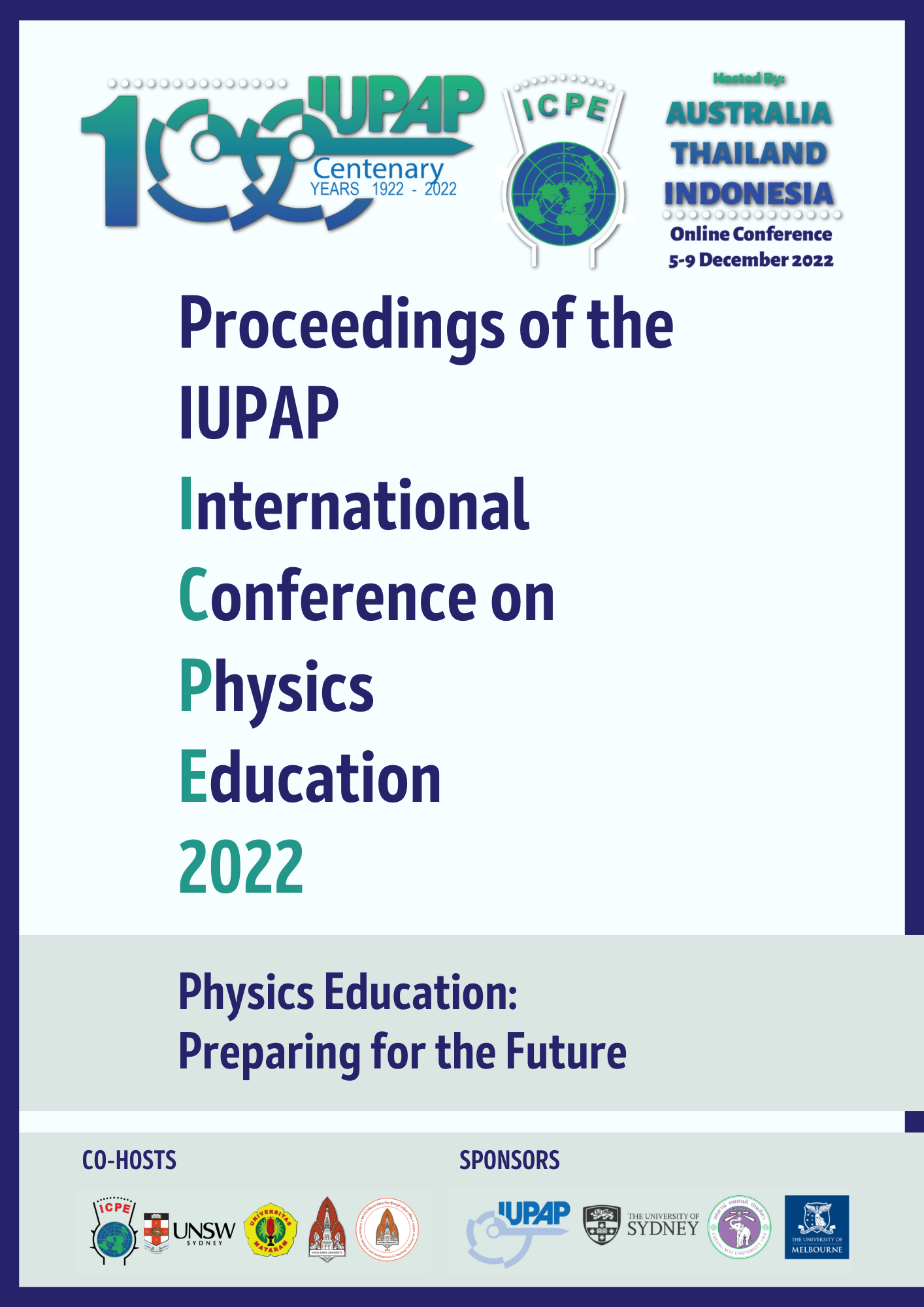Mechanical wave concepts of Thai high school students: Comparing learned and unlearned groups
Keywords:
students' conceptions, mechanical wave, Mechanical Wave Conceptual Survey, misconceptionsAbstract
Mechanical waves are one of the basic topics of physics, it is also the basis of various fields such as physical optics, geophysics, engineering and medical physics. We present on a study that aims to investigate mechanical wave concepts of Thai high school students. Participants were 160 Grade-10 students from high school in Songkla province, Thailand. They were divided into two groups. The first group consisted of eighty students who already learned about mechanical waves and the second group consisted of eighty students who had not learned the topic yet. The main instrument was the Mechanical Wave Conceptual Survey (Tongchai et al., 2009), consisting of 22 multiple-choice questions. The researchers also asked students to provide their reasoning for choosing their answer for each multiple-choice question. The survey was administered to students and they were given 50 minutes to complete it. Students’ answers and their reasoning were analyzed quantitatively and qualitatively. Students’ responses were categorized into five groups of misconceptions in mechanical waves. These misconceptions were 1) transport particles, 2) require a medium, 3) lack energy, 4) have a speed proportional to frequency, and 5) undergo frequency change upon reflection. Responses from both groups of students indicated the same misconceptions.
REFERENCE
Tongchai, A., Sharma, M. D., Johnston, I. D., Arayathanitkul, K., & Soankwan, C. (2009). Developing, evaluating and demonstrating the use of a conceptual survey in mechanical waves. International Journal of Science Education, 31(18), 2437-2457.
Downloads
Published
Issue
Section
License
Authors who publish with the Proceedings of the International Conference on Physics Education 2022 agree to the following terms:
a) Authors retain copyright and grant the journal right of first publication with the work simultaneously licensed under a Creative Commons Attribution License (https://creativecommons.org/licenses/by/4.0/) that allows others to share the work with an acknowledgement of the work's authorship and initial publication in this journal.
b) Authors are able to enter into separate, additional contractual arrangements for the non-exclusive distribution of the journal's published version of the work (e.g., post it to an institutional repository or publish it in a book), with an acknowledgement of its initial publication in this journal.
c) Authors are permitted and encouraged to post their work online (e.g., in institutional repositories or on their website) prior to and during the submission process, as it can lead to productive exchanges, as well as earlier and greater citation of published work (See The Effect of Open Access - http://opcit.eprints.org/oacitation-biblio.html).
Privacy Statement The names and email addresses entered in the Proceedings of the International Conference on Physics Education 2022 site will be used exclusively for the stated purposes of this journal and will not be made available for any other purpose or to any other party.
